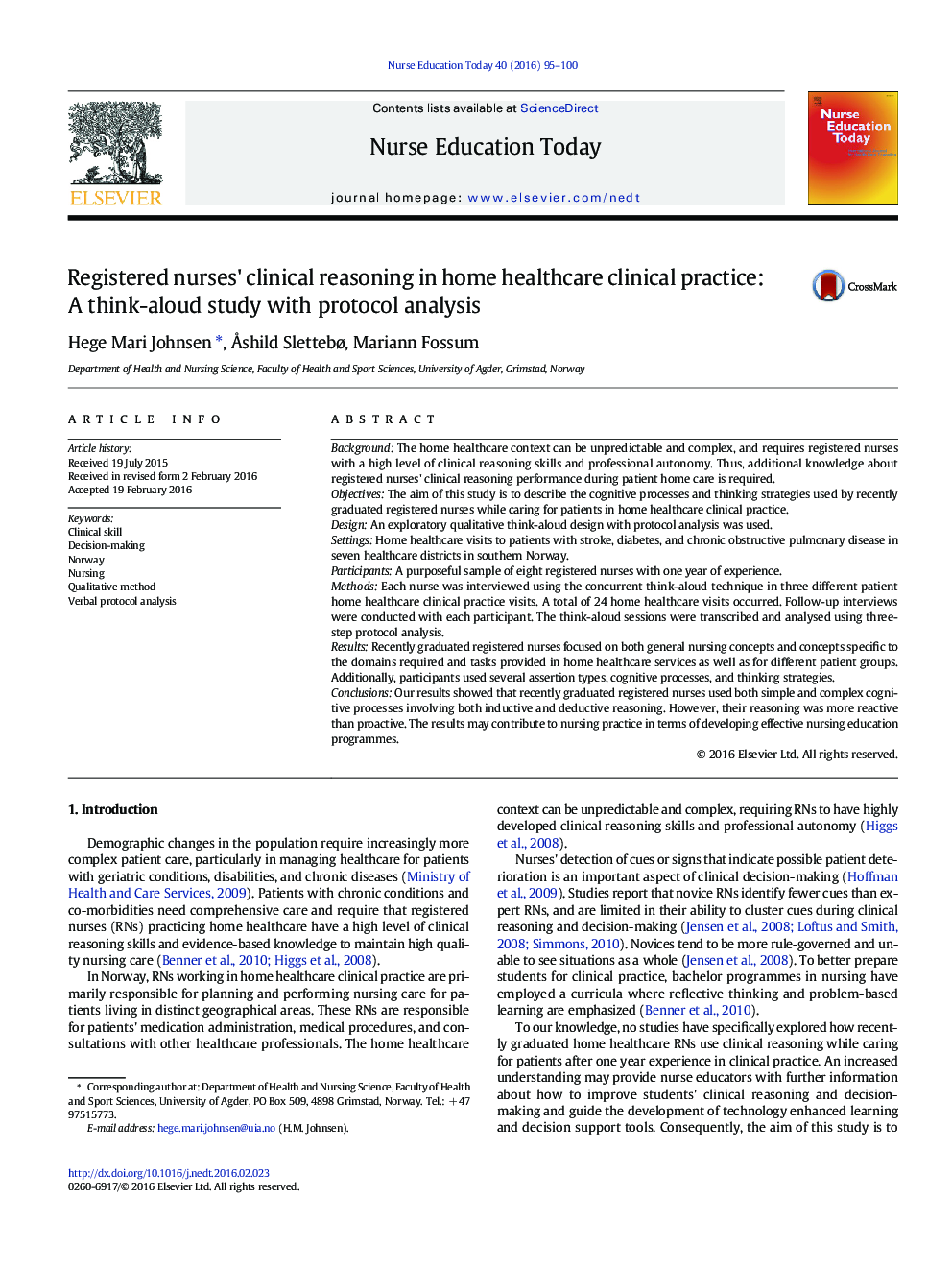| کد مقاله | کد نشریه | سال انتشار | مقاله انگلیسی | نسخه تمام متن |
|---|---|---|---|---|
| 367856 | 621548 | 2016 | 6 صفحه PDF | دانلود رایگان |
• The clinical reasoning used by recently graduated registered nurses was examined.
• Recently graduated nurses used both simple and complex cognitive processes.
• Recently graduated nurses utilised metacognitive skills and ethical reasoning.
• Knowing patients well had positive and negative effects on clinical reasoning.
BackgroundThe home healthcare context can be unpredictable and complex, and requires registered nurses with a high level of clinical reasoning skills and professional autonomy. Thus, additional knowledge about registered nurses' clinical reasoning performance during patient home care is required.ObjectivesThe aim of this study is to describe the cognitive processes and thinking strategies used by recently graduated registered nurses while caring for patients in home healthcare clinical practice.DesignAn exploratory qualitative think-aloud design with protocol analysis was used.SettingsHome healthcare visits to patients with stroke, diabetes, and chronic obstructive pulmonary disease in seven healthcare districts in southern Norway.ParticipantsA purposeful sample of eight registered nurses with one year of experience.MethodsEach nurse was interviewed using the concurrent think-aloud technique in three different patient home healthcare clinical practice visits. A total of 24 home healthcare visits occurred. Follow-up interviews were conducted with each participant. The think-aloud sessions were transcribed and analysed using three-step protocol analysis.ResultsRecently graduated registered nurses focused on both general nursing concepts and concepts specific to the domains required and tasks provided in home healthcare services as well as for different patient groups. Additionally, participants used several assertion types, cognitive processes, and thinking strategies.ConclusionsOur results showed that recently graduated registered nurses used both simple and complex cognitive processes involving both inductive and deductive reasoning. However, their reasoning was more reactive than proactive. The results may contribute to nursing practice in terms of developing effective nursing education programmes.
Journal: Nurse Education Today - Volume 40, May 2016, Pages 95–100
